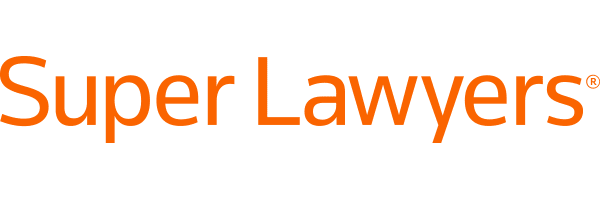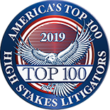The False Claims Act ("FCA") provides a major weapon in the federal Government's fight against fraud. The Government collected over $2.8 billion dollars in fiscal year 2018, and has collected in excess of $59 billion dollars under the False Claims Act between 1987 and 2018. The United States Department of Justice and United States Attorney's Offices across the country maintain affirmative civil enforcement units which litigate and sanction abuses of all federal Government programs. Civil proceedings may accompany criminal proceedings or may proceed on their own. Oftentimes, the prosecutors attack on both civil and criminal fronts at the same time, called parallel proceedings, and very often the institution of one proceeding will foreshadow the other.
The False Claims Act is contained at 31 U.S.C. § 3729 - 3731. Section 3729 creates civil liability for persons knowingly presenting false claims to an officer, employee or agent of the United States. Note that knowingly as defined by 31 U.S.C. § 3729(b)(1) is a much lower standard than one might typically expect. As defined the term includes reckless disregard and deliberate ignorance, and also does not require the Government to show any specific intent to defraud.
Section 3729(a)(1) provides the different bases the Government may pursue those who file false claims, all the provisions of which create liability under the statute. The provision also imposes liability on those persons who conspire to defraud the United States by getting a false or fraudulent claim paid. The statute imposes a mandatory civil penalty for each false claim in the amount of $5,000 to $10,000, plus three times the damages sustained by the government as a result of the false claim. Due to an inflation adjustment provision, in 2016, the U.S. Department Justice announced that adjusted civil penalties for FCA violations shall be a minimum and maximum per-claim amount of $10,781 and $21,563, respectively, for violations occurring on or after November 2, 2015. 81 Fed.Reg. 42491 (June 20, 2016); 28 U.S.C. § 2461. As an example, if a hypothetical defendant filed 50 false claims after November 2, 2015 which resulted in $10,000 of total single damages, he or she still faces between $539,050 to $1,078,015 dollars in civil penalties as a result of the 50 false claims. This is a hammer used by the Government to enforce compliance, and provides a substantial financial deterrent to those contemplating filing false claims.
Section 3729(b)(2) defines a claim as follows:
A. means any request or demand, whether under a contract or otherwise, for money or property and whether or not the United States has title to the money or property, that--
(i) is presented to an officer, employee, or agent of the United States; or
(ii) is made to a contractor, grantee, or other recipient, if the money or property is to be spent or used on the Government's behalf or to advance a Government program or interest, and if the United States Government--
(I) provides or has provided any portion of the money or property requested or demanded; or
(II) will reimburse such contractor, grantee, or other recipient for any portion of the money or property which is requested or demanded; and
(B) does not include requests or demands for money or property that the Government has paid to an individual as compensation for Federal employment or as an income subsidy with no restrictions on that individual's use of the money or property[.]
The FCA does provide for a possible reduction in the civil penalties. To obtain the benefit of the reduced penalty, a perpetrator must (1) self-report the violations within 30 days after the date on which the perpetrator first learned of the violation, (2) fully cooperate with the Government investigation of the violations, and (3) furnish the information to the Government prior to the commencement of any criminal prosecution, civil action, or administrative action and the reporting party cannot have knowledge of the investigation of such action. If a defendant meets all three of these criteria, the court may assess a penalty of not less than two times the amount of damage to the Government. 31 U.S.C. 3729(a)(2). The statute also provides that a non-prevailing defendant is liable for the costs to the Government of bringing the action. 31 U.S.C. § 3730.
Section 3730(a) authorizes the U.S. Attorney General to institute a civil action based on violations of Section 3729. Section 3731 provides for a statute of limitations of six years from the date of the violation or within three years of the date within which the facts material to the right of action are known or reasonably should have been known by the official charged with responsibility to act (in most health care fraud cases, the Inspector General), but in any event not more than 10 years from the violation.
Qui Tam Actions
The FCA also provides a mechanism for a private person to file an action based on violations of the Act and to profit handsomely as a result (typically where such violations were previously unknown to the Government). 31 U.S.C. § 3730. These law suits, called qui tam actions, provide a meaningful incentive for individuals aware of fraud and abuse against the Government to blow the whistle. A qui tam action is generally brought by a corporate insider, employee, officer, or agent, who has direct knowledge of violations of the False Claims Act. The action is commenced by the filing of a complaint. The complaint is filed under seal in the name of the United States. The plaintiff must serve the United States (both the U.S. Attorney General and the U.S. Attorney's Office in the applicable district) with the complaint and written disclosure of substantially all material evidence and information the plaintiff possesses relevant to the alleged violations. The complaint remains under seal for at least sixty (60) days, and longer if the Government so requests, in order to permit the Government time to determine whether to intervene in the action. In the event the Government elects to intervene, then the action shall be conducted by the Government.� In the event Government elects not to intervene, it must notify the court in which case the qui tam plaintiff pursues the action without the Government.
If the Government does intervene, it assumes the primary responsibility for pursuing the action. However, the action cannot be dismissed by the Government without notice to the qui tam plaintiff and an opportunity for the relator to be heard. The Government likewise can settle the action without the consent of the qui tam plaintiff if the court determines, after a hearing, that the proposed settlement is fair, adequate, and reasonable under all the circumstances. Under certain circumstances, namely a showing that the full participation by the qui tam plaintiff would cause undue delay or would be repetitious or harassing, the Government or the defendant can seek to limit the participation of the qui tam plaintiff.
In a case in which the Government elects to intervene and prevails, the qui tam relator is generally entitled to between 15 and 25% of the proceeds of the action or settlement. In instances where the court finds that the action is primarily based on disclosures of specific information (other than information provided by the qui tam plaintiff) relating to allegations in civil, criminal, or administrative hearings, the court can award such sums as it considers appropriate but not more than 10% of the proceeds of the action.
In a case in which the Government elects not to intervene, a prevailing plaintiff is entitled to 25 to 30% of the proceeds of the case plus costs and attorney's fees. A private qui tam plaintiff does not have complete authority over a case even where the Government has declined to intervene. For example, a private plaintiff cannot unilaterally accept a bargain settlement to benefit his/her own interests to the detriment of the Government. The Government retains the right to approve all potential qui tam settlements, and a fairness hearing by the Court is also required.
In all cases, however, if the court finds that the qui tam plaintiff planned and initiated the violation forming the basis of the action, then the court may reduce the plaintiff's share of the proceeds taking into account the role of plaintiff in bringing the action and any relevant circumstances pertaining to the violation. Further, if a qui tam plaintiff is criminally convicted of wrongful conduct arising from his violations of the False Claims Act, he or she shall receive no recovery and his or her action shall be dismissed.
The FCA provides protection from discrimination or retaliation for any employee who brings an action against his or her employer. The statute provides than an employee who is discharged as a result of his or her actions in connection with a qui tam action may be made whole by reinstatement, two times back pay, interest on back pay, special damages, costs and attorney's fees. 31 U.S.C. § 3730(h).
The only potential downside for the qui tam plaintiff is the possibility of having to pay the defendant's attorney's fees if the court finds that the action was clearly frivolous, clearly vexatious, or brought primarily for purposes of harassment. 31 U.S.C. § 3730(d)(4).
The FCA provides an incredible incentive for a whistleblower. The FCA provides for compensation to an individual who has not sustained any loss, and it provides for attorney's fees to the prevailing party.
When you need to file a qui tam whistleblower suit to stop a fraud upon the Government, please contact Joe Griffith Law Firm, LLC.









